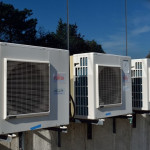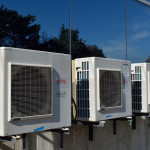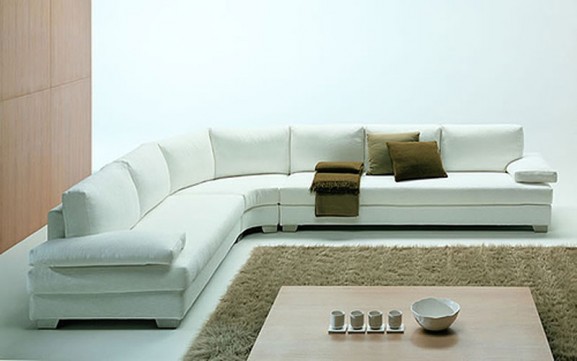Choosing the right HVAC contractor is important for ensuring that your Heating and cooling Monroe Michigan systems are properly installed, maintained, or repaired. J&K Heating and Cooling is a reliable and trustworthy choice for HVAC services in Monroe County Michigan. They offer competitive pricing on all of their services, and work with customers to find a solution that fits their budget.
Whether you need a new furnace installed, existing one repaired, air conditioning service, maintenance, replacement, or installation, heating services, maintenance, replacement, or installation, or HVAC repair, including 24/7 emergency service, J&K HVAC is the team to call. Contact them today to schedule a free consultation and experience the quality workmanship and customer service they provide.

Table of Contents:
Can You Heat With An Air Conditioner
As the temperatures start to drop, it’s time to start thinking about haow you’ll keep your home warm. Did you know that you can actually heat your home with an air conditioner? In this blog post, we’ll explore the mechanics of heating with an air conditioner, the benefits of doing so, and the safety considerations to keep in mind. By the end, you’ll know if heating with an air conditioner is the right choice for your home.
Mechanics Of Heating With An Air Conditioner
Heating with an air conditioner can be a cost-effective way to heat large spaces. However, before you consider using an air conditioner to heat your home, it’s important to understand the mechanics of how they work. In this section, we will cover the basics of air conditioners and provide tips on how they can be used for heating.
First, it’s important to understand that air conditioners are not just cooling devices – they can also be used as heating devices. Air conditioning is a process of removing moisture and heat from the atmosphere so that people and objects in the environment don’t get too hot or too cold. When used for heating, an air conditioner works by pulling warm air from inside the unit and pushing it out into the room or area you’re trying to heat. This process helps to maintain a comfortable temperature for those in the room or area.
Air conditioners come in different shapes and sizes, so it’s important to know which type is best suited for your needs. Some common types of AC units include window ACs, central ACs (in homes), portable ACs (for camping or other outdoor activities), and split-system ACs (which use both indoor and outdoor units).
When choosing an air conditioner for heating purposes, it’s important to consider your budget as well as your needs – bigger units tend to provide more cooling power than smaller ones do when used for heating purposes. Additionally, it’s important to verify that your unit has enough capacity – if you’re using an AC unit to heat a large space, make sure that your unit has enough power output!
Knowing How Heat Pumps Work For Heating And Cooling
The cooler months are here, and that means it’s time to start thinking about ways to heat your home. Whether you’re looking for an affordable solution or something with a little more oomph, there are many different options available. One popular option is using a heat pump. Heat pumps work by transferring heat from one area to another – in this case, from the outdoors into your home. This can be a great solution for people who live in climates where it’s cold outside but warm inside.
To understand how a heat pump works, it’s important to first understand what temperatures the air conditioner acts as a heater. The AC unit will typically operate at two different temperatures: the coolest temperature for cooling and the warmest temperature for heating. By using a thermostat, you can set the AC unit to act as either a heater or cooler depending on the time of year and your needs.
If you’re planning on installing a heat pump system in your home, be sure to consult with an experienced professional. Different systems require different installation techniques and may have different system requirements (such as insulation). Additionally, be sure to factor in system design and installation considerations (such as placement of ductwork), maintenance requirements (regular cleaning and lubrication), and cost comparisons between various heating/cooling systems before making any decisions.
Finally, once you’ve made your decision about which type of heating/cooling system to install, make sure you’re using it efficiently by regularly checking energy usage levels and adjusting settings as needed. In addition to being environmentally friendly, using efficient heating/cooling systems can help reduce your monthly expenses significantly!
Benefits Of Heating With An Air Conditioner
Summer is here, and that means hot, humid weather. Unfortunately, this type of weather can be tough to deal with – especially when it comes to heating your home. However, by using an air conditioner for both cooling and heating, you can make the most of the heat wave and stay comfortable all summer long. In this section, we’ll discuss the benefits of using an air conditioner to heat your home.
Before getting started, it’s important to understand the turbine cycle for heating with an air conditioner. This cycle involves passing a cool or cold air through a coil or fan to create heat. The different types of systems – dual system and single stage systems – have different advantages and disadvantages when it comes to heating your home. Dual system air conditioners have two coils inside the unit; one is used for cooling and the other is used for heating. This setup allows you to use both cooling and heating at the same time, which has some advantages over a single stage system.
Dual system air conditioners also have the advantage of being more efficient than single stage systems; they consume less energy overall. Furthermore, dual system air conditioners are typically more affordable than their single stage counterparts due to their greater capacity. Finally, dual system air conditioners are well-suited for hot climates because they can regulate temperature and humidity in your home very well.
Now that you know a little bit about how an air conditioner works, it’s time to take a look at what type of HVAC system would be best for you in terms of cost savings and performance. In general, ductless mini split HVAC systems are ideal for homes that don’t need too much cooling or heating power; they’re also relatively affordable compared to other options on the market. Another good option is central AC units; these machines are usually more powerful than ductless mini split units but tend to be less expensive overall due to their larger size.
After making your decision on what type of HVAC system best suits your needs, there are still some things that you should consider before installing it. For example, make sure that any utility lines running in front or behind your house can handle the increased load caused by an AC unit, check if there are any existing restrictions on noise levels from HVAC units,and determine whether or not you will need any maintenance services down the road ?.
Safety Considerations When Using An Air Conditioner To Heat
Are you looking for an affordable and efficient way to heat your home without having to use the oven or stove? Perhaps you’re considering using your air conditioner to heat up your home. Before doing so, it’s important to understand the advantages and disadvantages of using an air conditioner for heating, as well as the potential safety hazards.
The main advantage of using an air conditioner for heating is that it’s a very cost-effective way of heating up your home. Air conditioners are already installed in most homes, so there’s no need to purchase or install any additional hardware. Additionally, air conditioners are energy-efficient, which makes them a smart choice when it comes to energy conservation.
However, there are also some disadvantages to consider when using an air conditioner for heating. First and foremost, air conditioners can be quite loud – especially when they’re working hard – which can be disruptive if you’re trying to sleep. Second, airconditioners aren’t designed specifically for heating – they’re meant primarily for cooling down rooms – so they may not be effective at heat transfer when used in this manner. Finally, air conditioning units can be dangerous if not operated correctly. For example, if you accidentally turn on the AC unit while it’s in use as a heater, you could end up with serious injuries.
If you’re still considering using your air conditioner for heating purposes, it’s important that you understand the different types of air conditioning units available on the market and take precautions such as installing proper fire alarms and smoke detectors in close proximity to the AC unit.
All In All
Heating with an air conditioner can be a great way to save money and keep your home comfortable all year round. However, it is important to understand the mechanics of how they work, the capabilities and limitations of different types of AC units, and the safety considerations before attempting to heat your home with an AC unit. There are many benefits to heating with an air conditioner, such as cost savings and energy efficiency. Ultimately, it is important to weigh these benefits against any potential safety hazards before deciding if this is a good option for your home.
Posts from the same category:
- Heating And Cooling Monroe Michigan
- Heating & Cooling 101: What Type Of System Do You Have?
- Heating and Cooling in Brownstown MI
- Best residential HVAC company serving Monroe County Michigan
- Inotherm is the Trusted Name for Entrance Doors
- How to eliminate the possibility of any mistakes when investing in house rain gutters
- Roofing services to both residential and commercial customers











